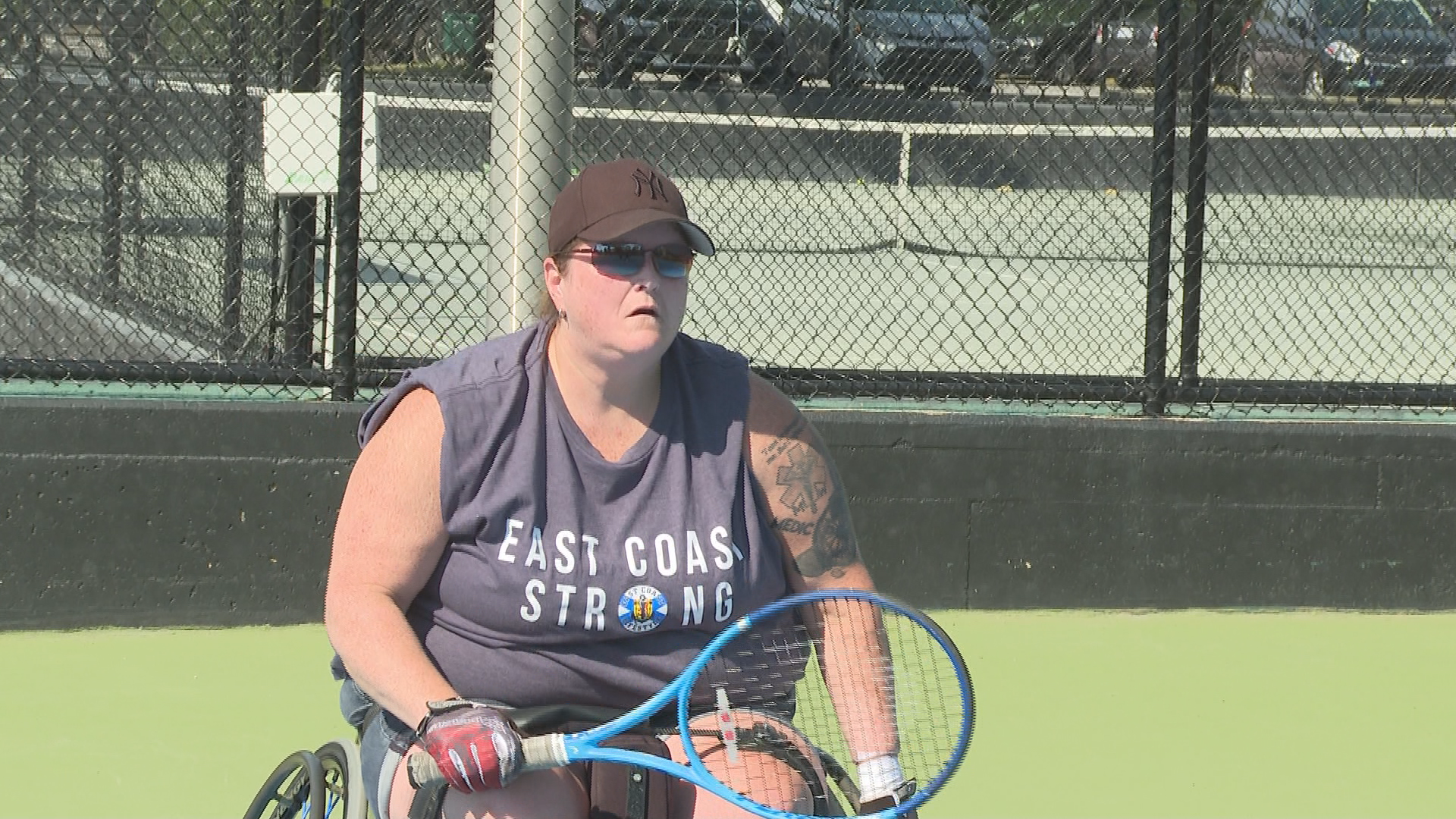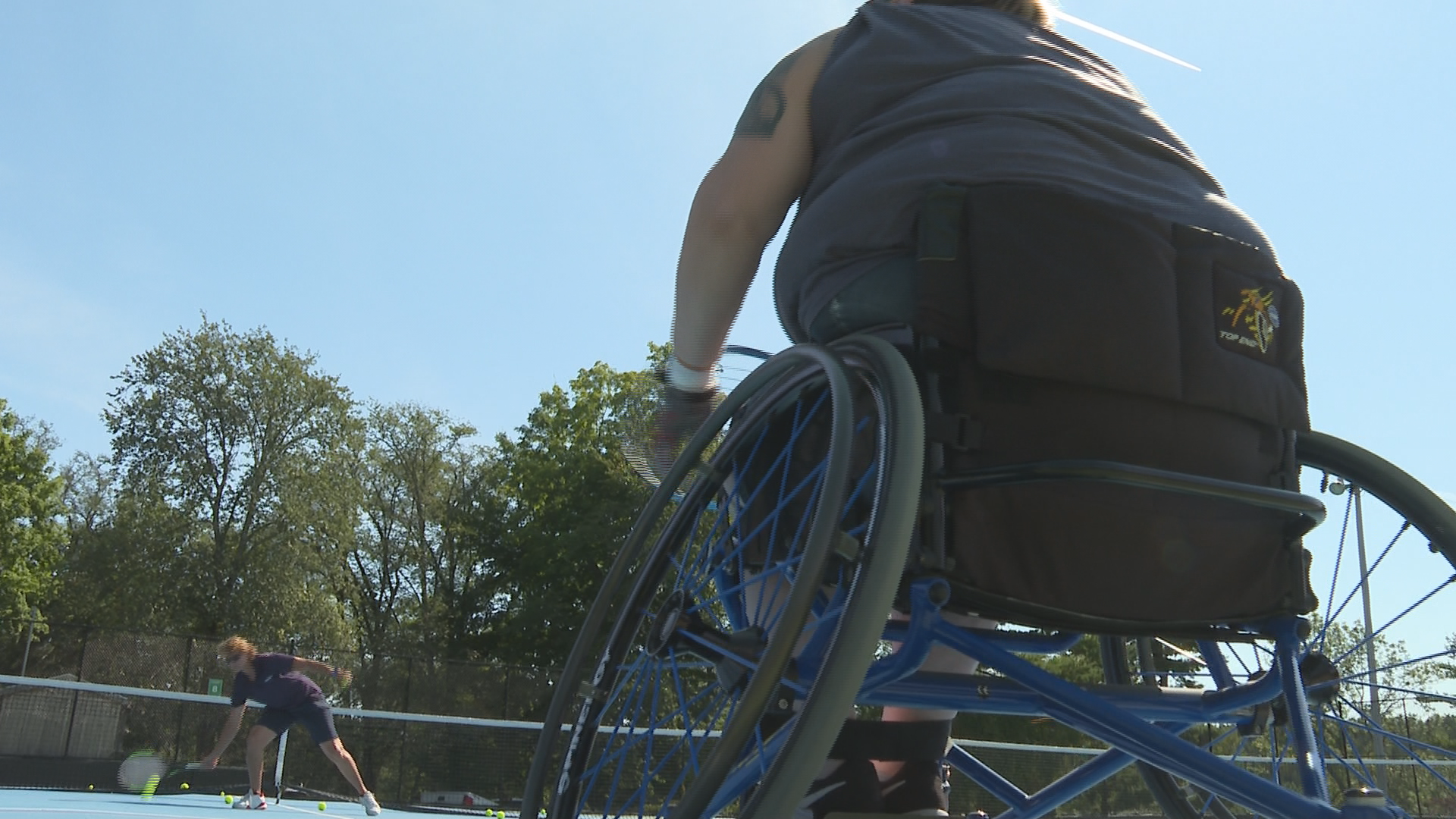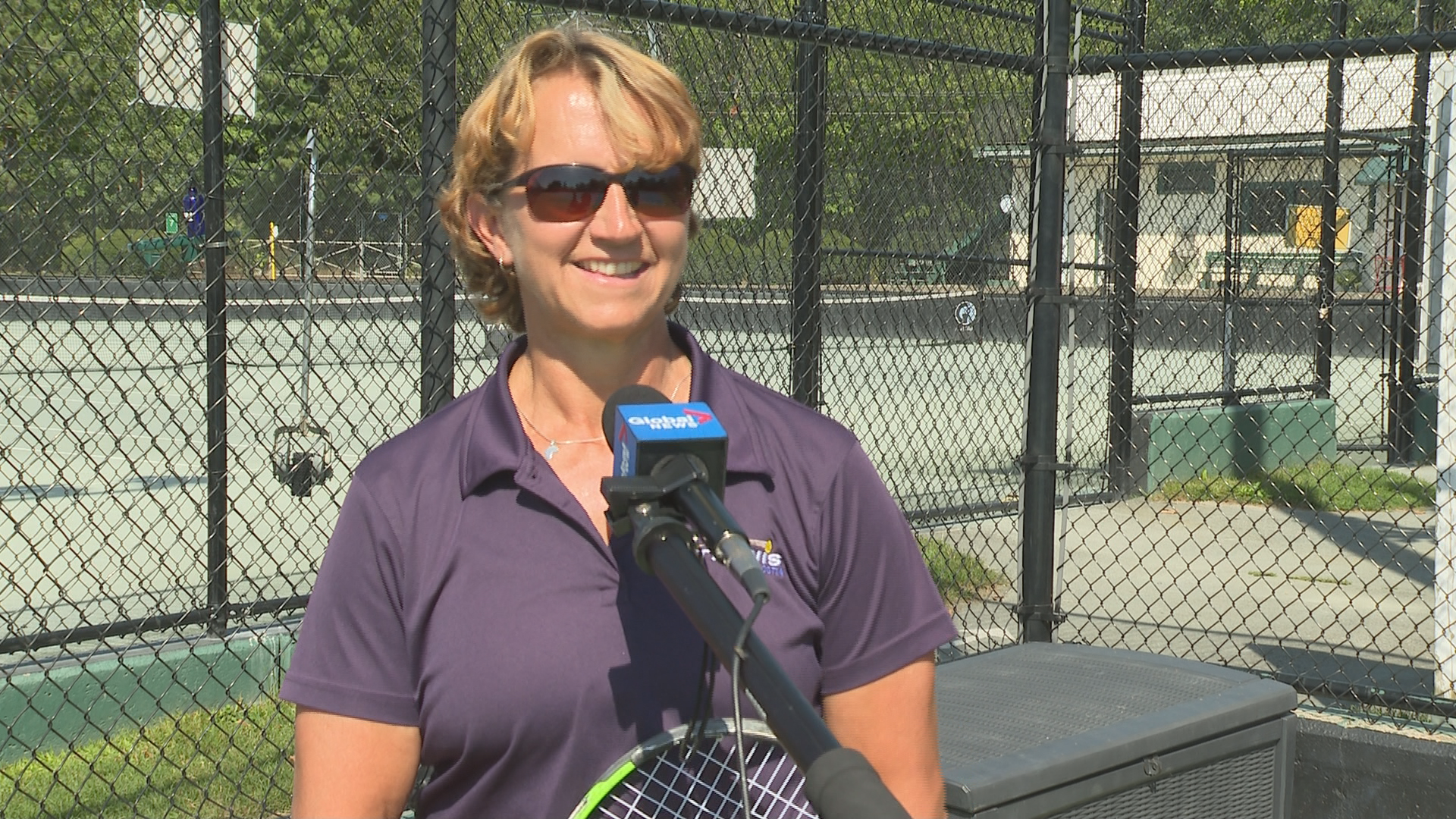On the tennis court is where wheelchair user Denise Fitzgerald finds strength — both physically and emotionally.

“This is my mental health, so during the pandemic, it was rough, because I wasn’t able to play,” she says.
She’s been playing for the past few years, following an incident several years ago that left her unable to use her legs.
It was while on vacation in St. Lucia in 2013 that Fitzgerald first sensed something wasn’t quite right.
“While I was there, they believe — they’re guessing — it was a mosquito that bit me,” she tells Global News.
“It was the night before we were coming back that I started having symptoms, and then I got back early Sunday morning and by Monday I was in hospital with high fever. I became confused. I got quite ill, leaving me with some cognitive deficit and the inability to walk.”
Once she adjusted to her new reality, the former competitive fast-baller, who describes sport as her mental health, went in search of something to feed her athletic nature.
“It was tough, and then there just happened to be something called the Parasport Expo, and that’s when I met Marijke,” Fitzgerald says.

Marijke Nel is Tennis Nova Scotia’s Technical Director. She introduced Fitzgerald to wheelchair tennis. It’s similar to regular tennis — same size court and height of net — but with two distinct differences: players are allowed up to two bounces, and they play with specially designed wheelchairs to avoid tipping.
“Coping with a bouncing ball and moving around the court is already hard for able-bodied people, so now imagine if you have to be in a wheelchair and do that. Some people struggle to even envision what that looks like,” Nel says.
Years ago, Tennis Canada appealed to provincial organizations to establish wheelchair programs across Canada. When Nel joined Tennis Nova Scotia in 2013, she was at the helm of growing the sport locally.
“It was a challenge, because it was on clay courts in the indoor season, and because there were different levels of disability, and I wasn’t trained to deal with that yet, to be able to coach paraplegic people who struggle to even hold the racket properly,” Nel tells Global News.
“So a few years went by where the program sort of fizzled out and there wasn’t constant and consistent participation.”
But thanks to a partnership with The Waegwoltic Club in Halifax and Bedford’s new, accessible Atlantic Tennis Centre, the program saw real growth last summer, as athletes are now able to play year-round.
“The numbers have grown so dramatically,” Nel says.
“In a wheelchair program, having two or three people in it would actually be constituted as a sustainable program, but we’ve got seven different players who come and go at different times of the year.”
Thanks to the program’s new-found popularity, Tennis Nova Scotia was able to apply for funding for four new wheelchairs last month.
“We’re expecting them within the next week or two, and then we’re able to put some of the people who have been in the program for the first time ever into a proper tennis chair, so we’re extremely excited for them,” Nel says.
Fitzgerald is happy to see the wheelchair tennis community grow, and she hopes to see it continue, as it’s a sport that has helped her in more ways than one.
“The coaches are amazing. They know when to push and when not to push and what level someone is, so I think even if you come and watch it for the first time, come,” Fitzgerald says.
“I encourage people to do it. If it’s not wheelchair tennis — something. There’s something out there for everyone. It’s just a matter of having that courage and having that internal strength to go try it, no matter where you are in your disability.”







Comments